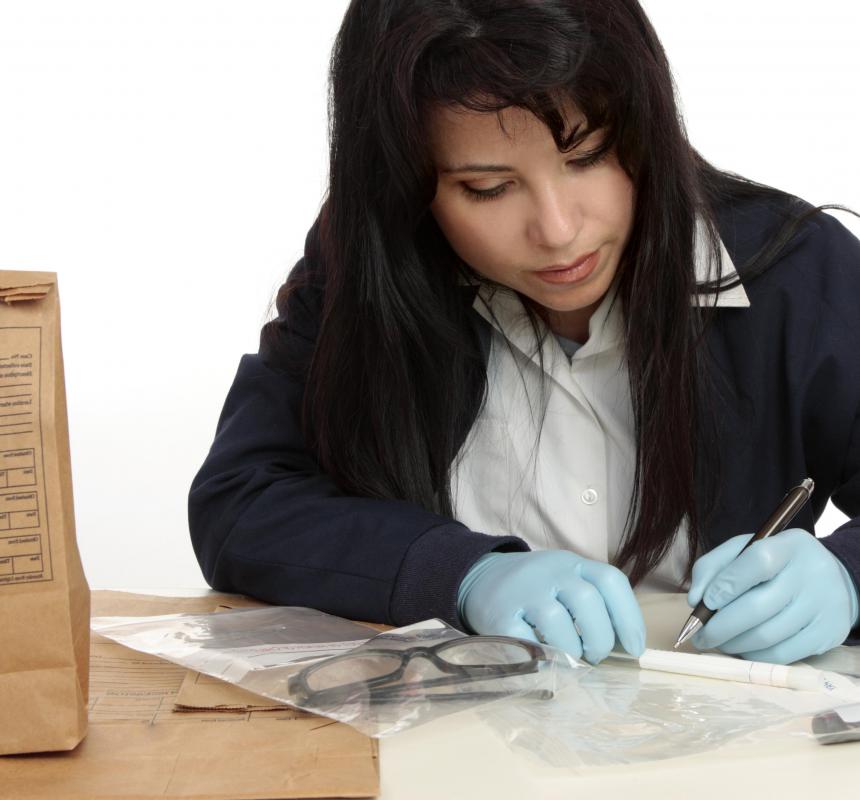At WiseGEEK, we're committed to delivering accurate, trustworthy information. Our expert-authored content is rigorously fact-checked and sourced from credible authorities. Discover how we uphold the highest standards in providing you with reliable knowledge.
What are the Different Types of Forensic Courses?
Forensic science is a very important area in the field of criminal justice. Individuals wishing to seek a career in forensic science may want to take a variety of forensic courses. There are different forensic courses available, such as the study of criminal psychology and computer forensics.
The majority of courses in forensic studies are administered through local community colleges or universities. There are also forensic courses available in an online format. Students wishing to study forensic topics should consider both programs to see what might be the best for them.
One significant forensic course focuses on psychology. In this course, students may learn about psychological issues and criminal activity. Other class topics may include how to analyze a criminal’s mind and develop criminal profiles.
Some forensic courses may focus on the criminal justice system. This may cover topics such as law enforcement, the court system, and investigation. Students may also study the prison system and policing.

Another area in the course of forensic science includes forensic nursing. This class combines medical care and the aspects of law. This course generally helps teach workers in the medical field to gather and analyze evidence at crime scenes. It may also help a healthcare worker to learn the legal rights of potential victims.
Some courses students may wish to take in the forensic program include biology and chemistry. These classes can offer the student an introduction to laboratory work and chemicals. These two classes usually provide training to perform forensic tests in a crime lab.

Advanced classes are frequently offered in the forensic science study programs. Some of the more common advanced classes include DNA study, drug chemistry, and investigation tactics. Computer forensic science is another class sometimes available in advanced forensic programs.
It is generally recommended that students get experience in their chosen forensics area. This is usually done after students complete the forensic courses. Students may spend a few weeks studying with a local law enforcement agency or medical facility. Other students may get courtroom experience by watching law enforcement officers perform interrogations.

Forensics courses typically cover a lot of material. When choosing forensic science courses, the student should remember that he or she might study a good deal of information. These classes also could potentially take a long time to complete. Students may want to choose their forensic field prior to selecting their courses.
AS FEATURED ON:
AS FEATURED ON:
















Discuss this Article
Post your comments